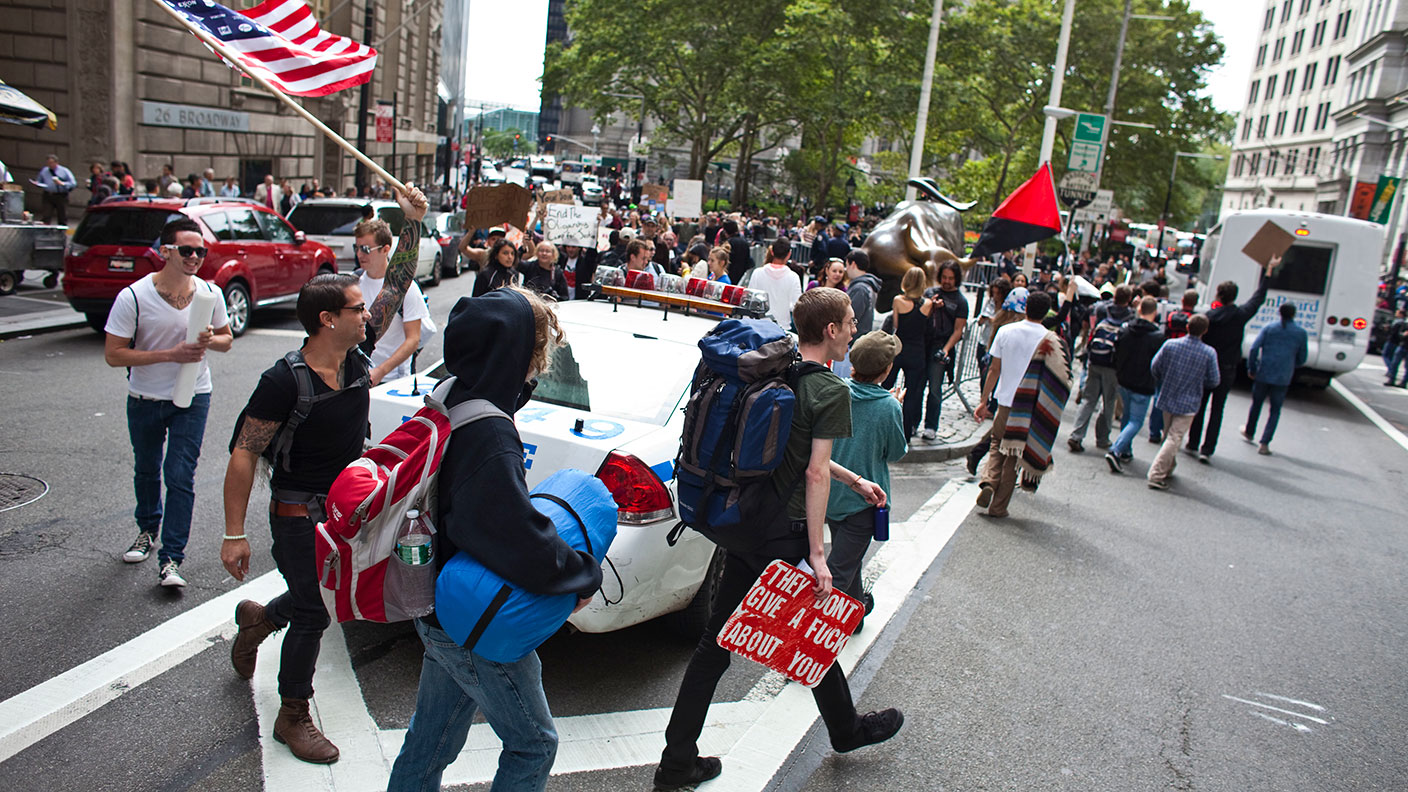17 September 2011: Occupy Wall Street protest begins
On this day in 2011, thousands of protesters answered the call to Occupy Wall Street, leading to similar protests around the world.


Get the latest financial news, insights and expert analysis from our award-winning MoneyWeek team, to help you understand what really matters when it comes to your finances.
You are now subscribed
Your newsletter sign-up was successful
Want to add more newsletters?
"Are you ready for a Tahrir moment?" Adbusters magazine asked of its readers in the summer of 2011. That year, Tahrir Square in downtown Cairo was at the centre of mass protests, known as the Arab Spring, aimed at bringing down corrupt governments across the region.
Meanwhile, across the Mediterranean in Spain, thousands of unemployed and dispossessed people, los indignados, camped out in plazas across the country, angered by austerity measures that saw their benefits cut and taxes raised in response to a financial crisis that they didn't start.
Activists in America recognised many of the same problems at home. Political lobbying by wealthy vested interests was rife. Bankers had been bailed out at the expense of the taxpayer, so that the US national debt stood at over $18trn. Yet bankers continued to receive bonuses and fat salaries, while only a tiny number were sent down for white-collar crimes.
Try 6 free issues of MoneyWeek today
Get unparalleled financial insight, analysis and expert opinion you can profit from.

Sign up to Money Morning
Don't miss the latest investment and personal finances news, market analysis, plus money-saving tips with our free twice-daily newsletter
Don't miss the latest investment and personal finances news, market analysis, plus money-saving tips with our free twice-daily newsletter
Students, too, were furious at being lumbered with debt piles they could scarcely manage before they'd even graduated
And all the while, the gulf in wealth inequality continued to widen. In 2007, the top 1% of Americans was earning 23.5% of the nation's income, leading to the rallying cry, "We are the 99%!"
That summer in 2011, Adbusters printed a poster that read "#occupywallstreet September 17th", followed by the practical advice: "Bring tent". Thousands of protesters turned up on the allotted date at Zuccotti Park in New York City. Their first choice of Chase Plaza had already been roped off by police.
The global media coverage and use of social media meant that the Occupy Wall Street protest lit a touch paper, setting off similar protests around the world, including in London, where a tent city sprang up around St Paul's Cathedral.
"The camps may be gone and Occupy may no longer be visible on the streets, but the gulf between the haves and the have-nots is still there, and growing", wrote Michael Levitin in The Atlantic. "What appeared to be a passing phenomenon of protest now looks like the future of US political debate."
Get the latest financial news, insights and expert analysis from our award-winning MoneyWeek team, to help you understand what really matters when it comes to your finances.

-
 Financial education: how to teach children about money
Financial education: how to teach children about moneyFinancial education was added to the national curriculum more than a decade ago, but it doesn’t seem to have done much good. It’s time to take back control
-
 Investing in Taiwan: profit from the rise of Asia’s Silicon Valley
Investing in Taiwan: profit from the rise of Asia’s Silicon ValleyTaiwan has become a technology manufacturing powerhouse. Smart investors should buy in now, says Matthew Partridge